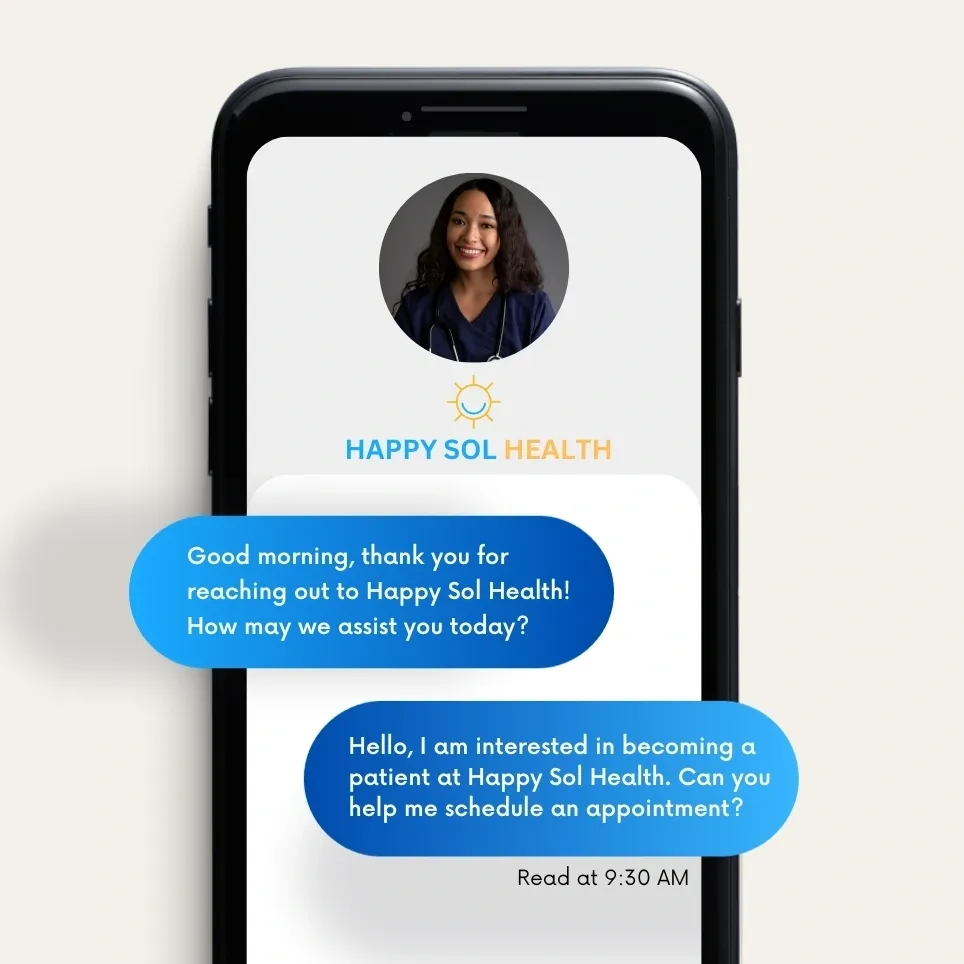What is depression?
Depression is an illness that affects how a person feels, thinks, and acts. It’s different from normal feelings of sadness or grief. A person who has depression may have less energy, he or she may lose interest in daily activities, and may feel sad and grouchy for a long time. Depression is a common illness. It affects men and women of all ages and backgrounds. Depression is a medical illness. It’s caused by changes in the natural chemicals in the brain. Most experts believe that a combination of family history (a person’s genes) and stressful life events can cause depression. Health problems may also cause depression or make it worse. It’s common for people with long-term (chronic) health problems like coronary artery disease, diabetes, cancer, or chronic pain to feel depressed. It’s important to know that depression can be treated. The first step toward feeling better is often just seeing that the problem exists.

Start your Mental Health Journey today!
- Medication Management
- In-person and Virtual appointments are available
- FDA Approved treatment options
- Great support staff that is here to help

What are depression symptoms?
The symptoms of depression may be hard to notice at first. They vary among people, and it’s easy to confuse them with just feeling “off.” The two most common symptoms are:
- Feeling sad or hopeless nearly every day for at least 2 weeks.
- Losing interest in or not getting pleasure from most activities that used to be enjoyable, and feeling this way nearly every day for at least 2 weeks. Other symptoms may appear.
A person with depression may also experience, almost every day:
- Eat or sleep more or less than usual.
- Feel tired.
- Feel unworthy or guilty.
- Find it hard to focus, remember things, or make decisions.
- Persistent sad, anxious, or “empty” mood
- Feelings of hopelessness or pessimism
- Feelings of irritability, frustration, or restlessness
- Feelings of guilt, worthlessness, or helplessness
- Loss of interest or pleasure in hobbies and activities
- Decreased energy, fatigue, or feeling slowed down
- Difficulty concentrating, remembering, or making decisions
- Difficulty sleeping, waking early in the morning, or oversleeping
- Changes in appetite or unplanned weight changes
- Physical aches or pains, headaches, cramps, or digestive problems that do not have a clear physical cause and do not go away with treatment
- A serious symptom of depression is thinking about death or suicide. If you or someone you care about talks about this or about feeling hopeless, get help right away.
There are different types of depression, some of which develop due to specific circumstances.
- Major depression includes symptoms of depressed mood or loss of interest, most of the time for at least 2 weeks, that interfere with daily activities.
- Persistent depressive disorder (also called dysthymia or dysthymic disorder) consists of less severe symptoms of depression that last much longer, usually for at least 2 years.
- Perinatal depression is depression that occurs during or after pregnancy. Depression that begins during pregnancy is prenatal depression and depression that begins after the baby is born is postpartum depression.
- Seasonal affective disorder is depression that comes and goes with the seasons, with symptoms typically starting in the late fall and early winter and going away during the spring and summer.
- Depression with symptoms of psychosis is a severe form of depression in which a person experiences psychosis symptoms, such as delusions (disturbing, false fixed beliefs) or hallucinations (hearing or seeing things others do not hear or see).
People with bipolar disorder (formerly called manic depression or manic-depressive illness) also experience depressive episodes, during which they feel sad, indifferent, or hopeless, combined with a very low activity level. But a person with bipolar disorder also experiences manic (or less severe hypomanic) episodes, or unusually elevated moods, in which they might feel very happy, irritable, or “up,” with a marked increase in activity level.
If you're depressed, you may feel sad, hopeless and lose interest in things you used to enjoy. The symptoms persist for weeks or months and are bad enough to interfere with your work, social life and family life.
How is depression treated?
Depression is often treated with medicines or counseling, the combination of the two is known to work best. Many people don’t get help because they think that they’ll get over the depression on their own. However, some people do not get better without treatment.
Antidepressant medicines can improve the symptoms of depression in 1 to 3 weeks. But it can take 6 to 8 weeks to see more improvement. Your doctor will likely have you keep taking these medicines for at least 6 months.
In many cases, counseling can work as well as medicines to treat mild to moderate depression. This kind of treatment deals with how you think about things and how you act each day. If depression is caused by a medical problem, treating that problem may also help relieve the depression.
Many types of antidepressants are available to treat depression, including:
These antidepressants generally cause fewer bothersome side effects and are less likely to cause problems at higher therapeutic doses than other types of antidepressants include:
- (SSRIs)
- (SNRIs)
- Atypical antidepressants
Healthcare providers often start by prescribing an SSRI.
- Fluoxetine (Prozac)
- Paroxetine (Paxil, Pexeva)
- Sertraline (Zoloft),
- Citalopram (Celexa)
- Escitalopram (Lexapro)
- Duloxetine (Cymbalta, Drizalma Sprinkle)
- Venlafaxine (Effexor XR)
- Desvenlafaxine (Pristiq)
- Levomilnacipran (Fetzima)
These antidepressants are called atypical because they don't fit neatly into the other antidepressant categories. More-commonly prescribed antidepressants in this category include
- Trazodone (Desyrel)
- Mirtazapine (Remeron)
- Vortioxetine (Trintellix)
- Vilazodone (Viibryd)
- Bupropion (Forfivo XL, Wellbutrin SR, others) Bupropion is one of the few antidepressants not frequently associated with sexual side effects.
Follow-up care is a key part of your treatment and safety.
Be sure to make and go to all appointments, and call your doctor if you are having problems. It’s also a good idea to keep a list of the medicines you take.

Take the First Step Toward Healing Today!
Our Mental health professionals are committed to providing personalized care and innovative treatments to ensure you receive the best possible outcome.
